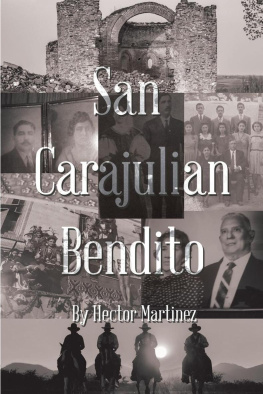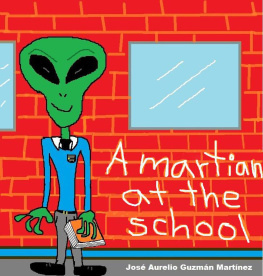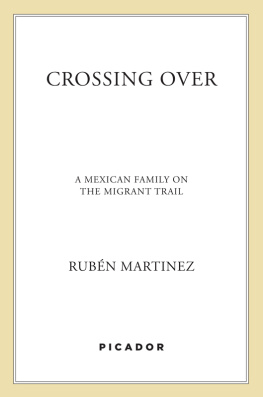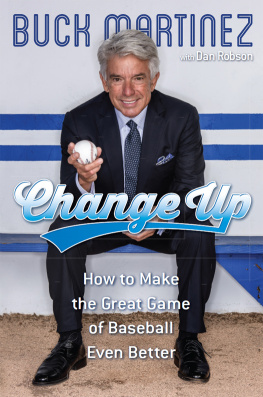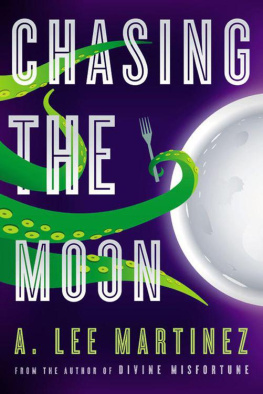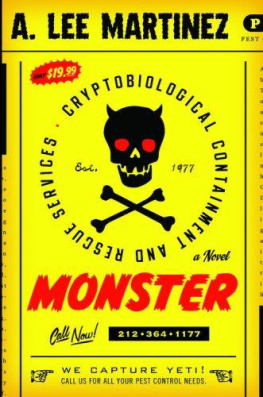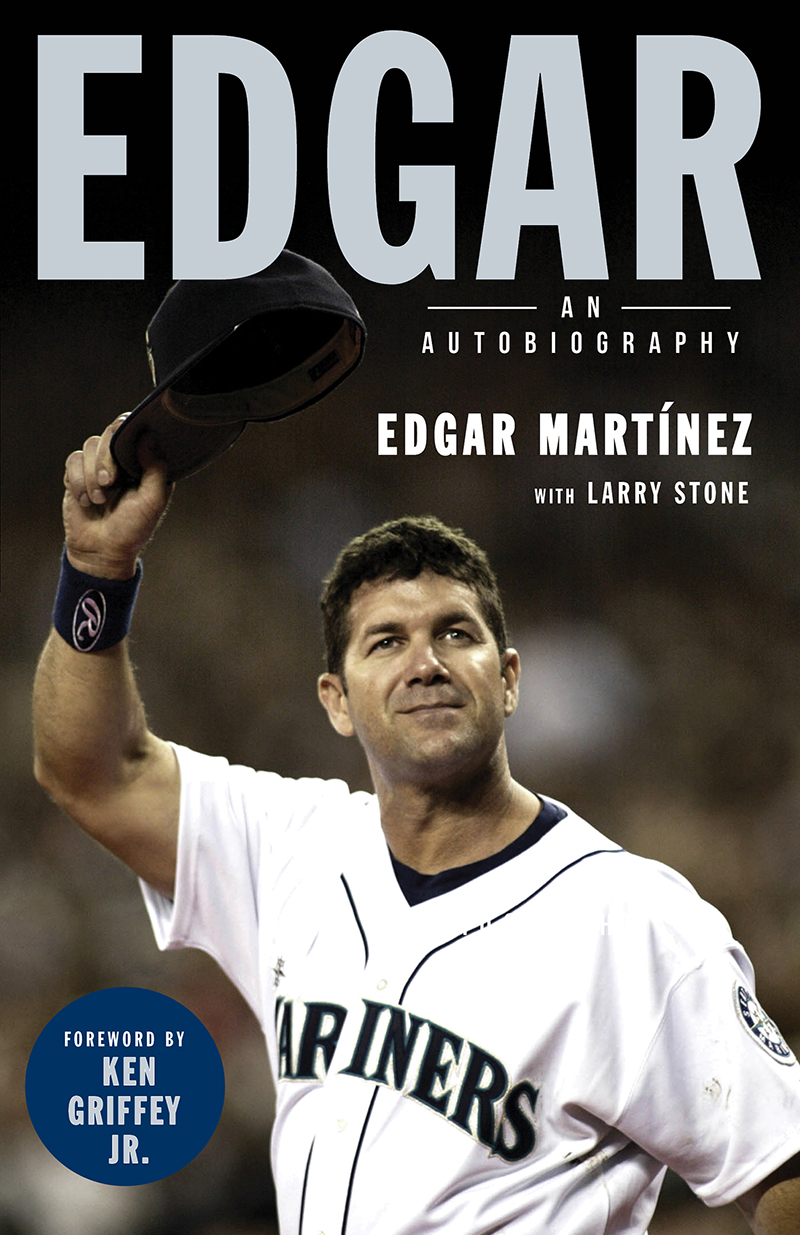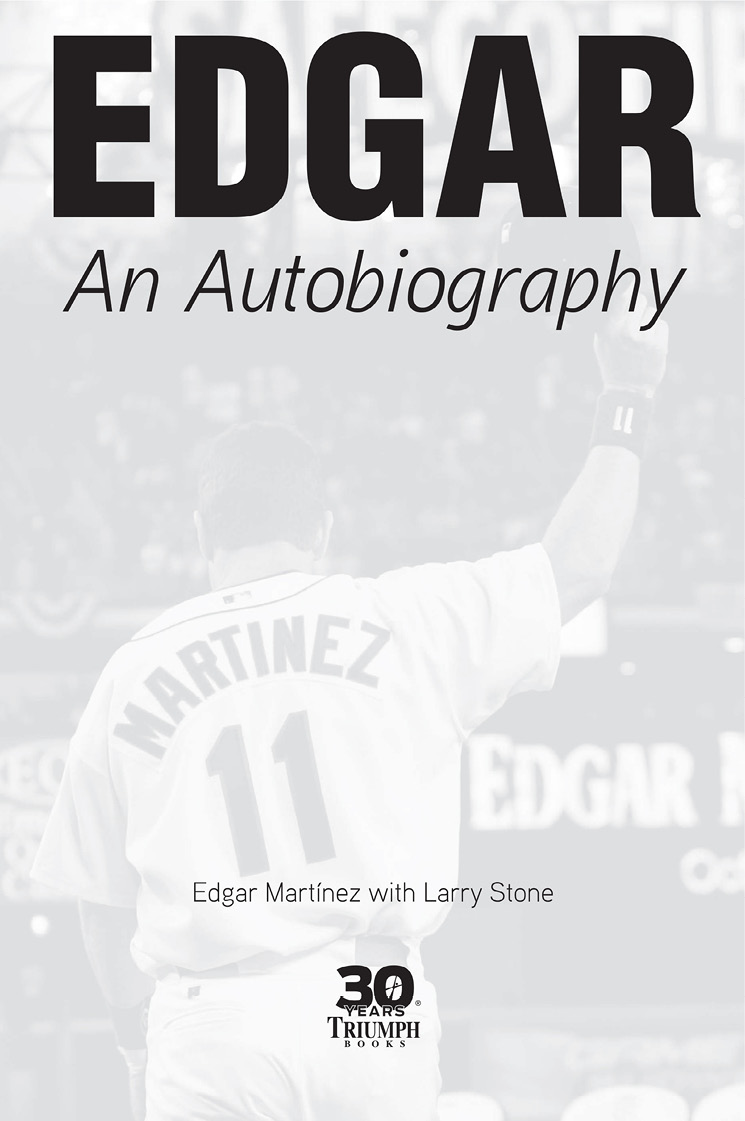
For Holli, Alex, Tessa, and Jacqueline
E.M.
For Mom, whose memory shines on, and the family she loved: Dad; Judy and Esther; Lisa, Jessica, Meredith, and Jordan
L.S.
Contents
Foreword by Ken Griffey Jr.
When I think of my friend Edgar Martnez, I think first of his incredible work ethic.
Well, first I think of that amazing mustache he had when we were teammates on the Mariners in 1989. I was just a 19-year-old rookie and couldnt grow any facial hair at all, so I was jealous of all the guys who could sport a mustache or goatee. The only thing I had was a froand Edgar had a little bit of that going, too.
But it was evident to me from the start that Edgar put in an unbelievable amount of work. People see what he did on the field, which led to a brilliant career that rightfully put him in the Hall of Fame in 2019. What they didnt see was what he did off the field. The eye exercises Edgar did for 20 to 30 minutes every single day to correct his vision problem. The hours in the weight room and the batting cage. They see the two batting titles, but not the work it took to accomplish that feat.
I was lucky enough to see it close up for the 11 seasons we were together in Seattle. I saw the countless hours Edgar spent preparing before each game. And I understood that the job he had for most of his career, designated hitter, is the hardest position in baseball. Playing in the field, you can sweat a little, get some flow and rhythm going. But as the DH, all youre doing is hitting. You have to go up to the plate cold. Its just hard. It would be like a basketball player who doesnt run up and down the court. You just stand in the corner, and if we pass it to you, you shoot.
Edgar found a way to make it work, though. He took that position to new heights. He transformed the DH spot from what it used to be, which was an older guy trying to hold on for a couple more years. After Edgar, teams looked for guys who were in their prime to DH. When he wasnt playing in the field, Edgar studied the game. He was one of the most prepared guys in baseball. Because he had to be. Whenever there was a pitching change, wed go to Edgar to get a scouting report. He would tell us what pitches the guy threw, what tendencies he had. When Edgar got done, I would look over at Lee Elia, our hitting coach, and hed nod his head yes.
It took a while for Edgar to get a starting job on the Marinersand early in his career, he was a good defensive third baseman, too. He didnt show any frustration. He just worked harder. We had a logjam at third, and Jim Presley was ahead of Edgar, even though he was tearing up Triple-A. But when you can hit, theyll find a spot for you. And Edgar could hit. Every year for a decade-plus, he put up a .300 average, 25 to 30 homers, 40 to 50 doubles, 100 RBIs, and he could even steal a base when he needed to.
Edgars night was four at-batsfive if he was lucky. So his mindset had to be different than ours. We could go out and play defense. He just had those at-bats to make an impact. It was impressive to see him do it day in and day out, to be ready for an at-bat after sitting for 30 to 40 minutes. He made a living doing that.
One great thing about that group we had in SeattleEdgar and Jay Buhner and Dan Wilson and all the restis that we took care of each other. We were all in the same age group, and we all got along. We pushed each other, too, in a positive way. The only way to get better is to compete, and wed do that every day in batting practice. Whether it was getting the guy over, home run derby, getting the guy init was a competition. But we all rooted for each other. The jealousy wasnt there. Edgar winning a batting title was like Jay or I winning a batting title, even though we didnt hit for him. We were just as excited when he won it as if we had won it ourselves.
Thats the way we took care of each other. No one cared whose name was in the paper or not in the paper. As long as we went out and played and did our jobs, we didnt worry about who had the headlines. It was like, Okay, if you want a headline, go ahead and do something to earn it.
Edgar was a funny guy, too. He had a dry humorand sometimes hed crack us up without even trying. Youd just look at him, and it was almost like how people say things about Rickey Henderson. Wed say, There goes Gar.
When we were in the hitters meeting, as soon as someone said the word cutter, wed all look at Edgar. Hed say, Everyone has a cutter. No one throws the ball straight anymore. It was no longer the sinker everyone was upset about; it was the cutter. Well, Gar made his living off the cutter. He hit nearly .600 against the guy with the best one, Mariano Rivera. Now theyre going in the Hall of Fame together.
Early in his career, Edgar hit second, right in front of me. But I think when a guy hits as many doubles as Edgar did, and the No. 3 hitter keeps getting walked, youre going to make a change. Lou Piniella put Edgar at cleanup behind me. He wasnt the traditional fourth hitter, but he could do a lot more damage than most No. 4 hitters. He had a deadly combination of not striking out, doubling you to death, working the count, and having the ability to hit the ball out of the ballpark. And, oh yeah, hed hit it down the right-field line as if he was a left-handed pull hitter.
Of course, Edgar and I will always be linked by the double he hit in Game 5 of the 1995 playoffs against the Yankees. It scored me from first base with the winning run to clinch the Division Series. That was an incredible year for all of us. I broke my wrist in May, and we eventually fell 13 games behind the Angels before making a miracle comeback. You look at how many people can carry a team for one, two, three, or maybe four days in a month. Between five guys, they carried it for 73 games. Then more than that after I came back. Thats how determined the guys were to just keep fighting. So many guys stepped up. You hear about next man up. That year, we stepped up as a team and were able to do something that was fun and excitingnot only for the players, but for the city of Seattle, and for baseball.
When Edgar stepped up against Jack McDowell in the 11 th inning at the Kingdome, we were trailing the Yankees by one. Joey Cora was on third and I was sitting on first base as the winning run. What I was thinking was, Give yourself a chance to score. If Edgar hits a double and I dont score, then maybe they get out of the inning and who knows what happens? I wanted to score for Edgar. I wanted to make it hard for Sammy Perlozzo, our third-base coach, to stop me. Make him have to come in and explain why he sent me or stopped me. You didnt want Lou to ask you that question: Why werent you running? Thats the worst feeling in the world.
Of course, Edgar hit it into the left-field corner and I scored from first to win the game. The players came out and mobbed me, and theres a famous picture of me smiling at the bottom of the pile. Im just trying to get people off me! Dont forget, I had surgery three months earlier. Thats why I rolled over the way I did, to protect my wrist. But sliding into home and having people jump up and down, thats one of the greatest feelings you can have as a player.
Playing with Edgar, being his teammate and friend, was another one of the joys of my career. I think it took a little longer for people to realize how good he was. But when you put his numbers up against everyone elses, you see how consistent he was. When I was growing up, the definition of a Hall of Famer was someone who was one of the most feared guys for 10 years. Thats the way it was when my dad played, and thats the criteria I grew up believing.


